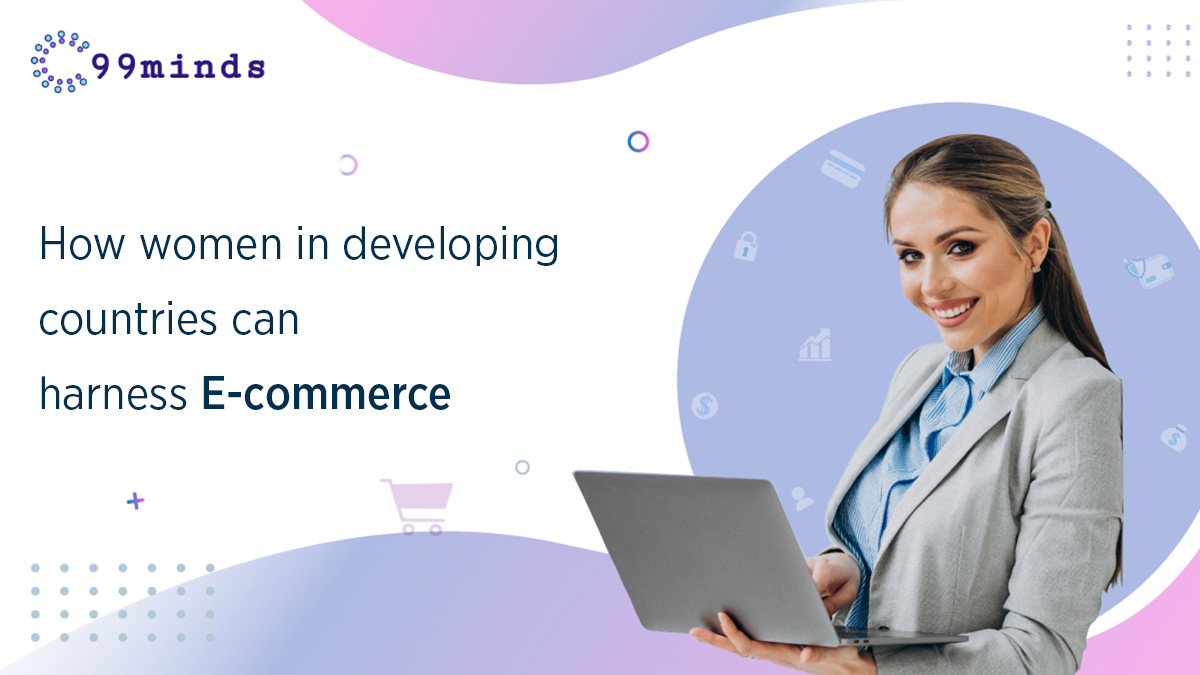
For women who are in developing countries, eCommerce is a boon that they can and should take advantage of. The best thing about a digital platform is that there is no incentive for the platform to be gender-biased.
The landscape of eCommerce keeps evolving, the only problem is that there is not a lot of data available on developing countries. Only with the help of statistics is it possible to measure the kind of impact that eCommerce has on developing economies. In this article, we are going to talk about the impact of eCommerce on developing countries, especially on its women.
Most of the educated world rallied around to have more women in STEM (Science, Technology, Engineering and Mathematics) and in IT, now is the time to push more women into eCommerce.
Why?
Because it is liberating to be in a field where you are not judged based on your gender. Ecommerce is the kind of industry that does not look at who is running the ship nor does it require the help of middlemen. Every eCommerce enabler, like a logistics firm or a packaging firm are businesses which only look at its own bottom line.
There are no geographical boundaries either when it comes to eCommerce. You can sell anything (As long as it is legal) to anyone in the world.
Many initiatives, communities and platforms have been launched in the recent past across different countries to encourage more women in the workforce. There have been global initiatives that aim to unite women across the world to make a change in the world of eCommerce, one of them is the eTrade for Women platform which acts as an information hub which helps developing countries to navigate the wealth of technical and financial services that one can use to be successful here.
In an ideal world, there would be no gender-specific barriers for those who are using digital channels to build a business. Unfortunately, we are not living in a utopian world, and that is why a self-made white male entrepreneur is still the archetype of a successful eCommerce entrepreneur.
For digital entrepreneurship, there is easy access to inexpensive technology and there are no huge upfront costs involved (based on the product you are selling and your business model). Since the majority of women-run eCommerce enterprises are also the ones running their own homes, there are a lot of barriers presented in terms of patriarchal attitudes and traditions which look down upon women who go to work.
Ecommerce can be one of the most decisive agents in making women from developing countries empowered. By following the above ten steps, you can make a significant amount of change with respect to eCommerce in your country. More than just getting more eCommerce businesses with this initiative, the real objective is to improve the lives of many young women in your respective country.
There are many smart and ambitious women, all of whom are looking for the right opportunity. With the right kind of mentoring, infrastructure, role models, technology education, empowerment, digital teaching, etc., we can make women become a huge force in the eCommerce industry. As we had mentioned in the beginning of this piece, governments and private organizations need to do this on a war footing.
Finding successful women entrepreneurs will inspire the next generation of female entrepreneurs. It will help more women break the proverbial glass ceiling and do well for themselves.